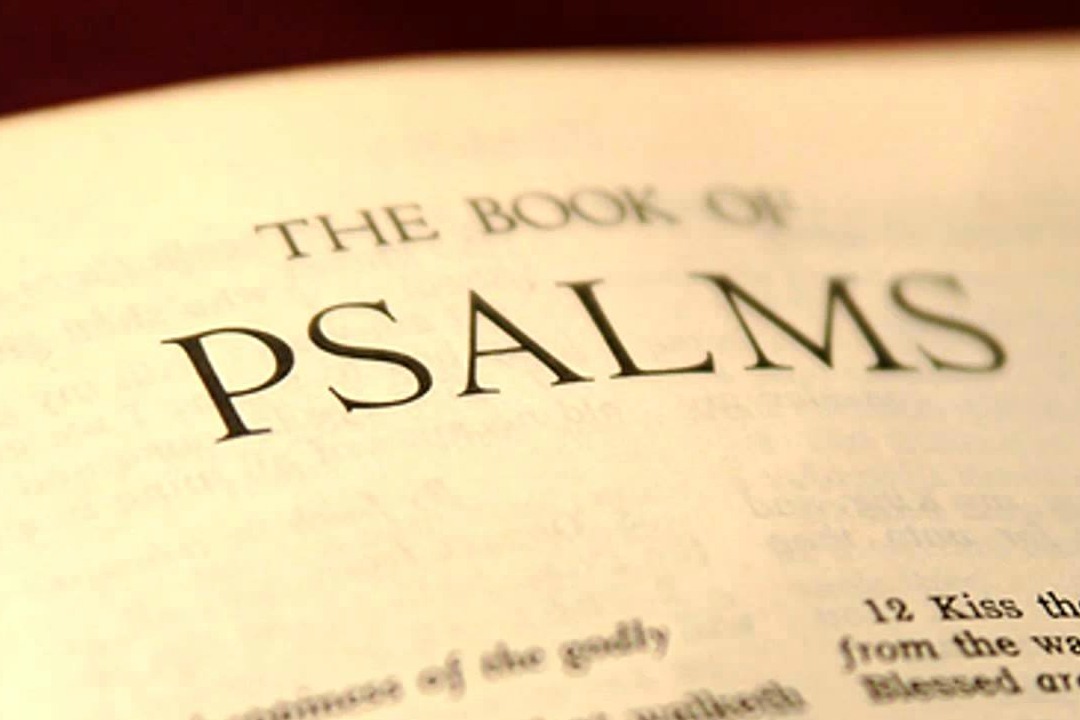Wedged between the First Reading and Second Reading at Sunday Mass (or between the First Reading and Gospel at daily Mass) is a small reading known as the Responsorial Psalm. If you attend Mass today, for example, you will hear:
The Lord hears the cry of the poor
I will bless the Lord at all times; his praise shall be ever in my mouth.
Taste and see how good the Lord is;
Blessed the man who takes refuge in him.The Lord hears the cry of the poor.
The LORD confronts the evildoers,
To destroy remembrance of them from the earth.
When the just cry out, the LORD hears them,
And from all their distress he rescues them.The Lord hears the cry of the poor.
The Lord is close to the brokenhearted;
And those who are crushed in spirit he saves.
Many are the troubles of the just man,
But out of them all the LORD delivers him.The Lord hears the cry of the poor.
Few would argue the beauty, power, and import of these words for the life of the Church today. Yet rarely, if ever, will a homily turn to the Psalter or expound the Responsorial Psalm of the day. We churchgoers are likely to hear preaching on religious themes, social or cultural issues, or the daily readings and Gospel—but never a homily on the Psalm. In fact, beyond the brief recitation of the Psalm at Mass, ordinary Christians’ engagement with this Old Testament book is minimal.
But this was not always the case, as the great Patristic exegetes and preachers of the early Church—Gregory of Nyssa, Augustine of Hippo, Basil of Caesarea—all wrote entire treatises and delivered passionate homilies expounding the Psalter, going so far as to situate it at the heart of the Church’s prayer and self-understanding. These Patristic authors spoke of the Psalter’s unparalleled advantages for prayer, the cultivation of virtue, catechesis, and evangelization. They even call the Book of Psalms a garden in which one can find the whole of Scripture recapitulated and set to music, with “added marvels all its own”: that is, the unique ability of the psalms to affect and move their reader in a distinct way. One would not dare “to utter the words of the patriarchs as his own . . . or “to imitate and to say Moses’ own words,” Athanasius writes in his Epistle to Marcellinus (Ep. Marc. 11, p. 109). But the Psalter “not only enjoins, but invites and expresses, repentance, endurance and thanksgiving, so that each man adopts its language as his own.”
Athanasius refers to the Psalter as a kind of mirror, through which their reader can contemplate his or her own soul and measure it against the true Form, while Basil of Caesarea adopts the imagery of a pharmaceutical, referring to the Psalms as medicine for the wounded soul: “The old wounds of souls it cures completely,” he writes, “and to the recently wounded it brings speedy improvement; the diseased it treats, and the unharmed it preserves” (Basil of Caesarea, Exegetic Homilies: 153). The act of singing and setting the Psalter to music, for Basil, is like a coating of honey: the proverbial“spoonful of sugar” that helps the medicine “go down.”
In these metaphors, both authors are attempting to capture something of the Psalter’s healing and formative character. The recitation of the psalms, they argue, heal and re-form the soul according to the image of Christ prophesied throughout and made present within the Psalter. But in addition to these functions the Psalter is unparalleled in its ability to facilitate the cultivation of virtue and as a source for catechesis and evangelization, pointing to the unchangeable “Goodness itself toward which all things look” (Basil, 158).
One of the greatest appreciators of the Psalms’ centrality in the life of the Church—lay and cleric alike—is Thomas Merton, whose small track on praying the Psalms was especially formative in the incorporation of the Psalter into my own prayer (Thomas Merton, Praying the Psalms, Collegeville: The Liturgical Press, 1956. 45 pp). For Merton, the Church loves the Psalms because of all of the reasons listed above but also because in the Psalms “we drink divine praise at its pure and stainless source, in all its primitive sincerity and perfection” (7). Through the Psalms we discover the Lord to whom we are speaking, and we discover ourselves as well. The Psalms are the words of God Himself, who desires to hear them from us, but perhaps even more shockingly the Psalms are “the very expression of [the Church’s] deepest inner life” (8). As Merton puts it, “The words and thoughts of the Psalms spring not only from the unsearchable depths of God, but also from the inmost heart of the Church, and there are no songs which better express her soul, her desires, her longing, her sorrows and her joys” (8).
It is all too easy to skim over or zone out during this short, at times perplexing, part of the Mass. But pay attention to the words of the Psalm each day: you will begin to notice that they run the gamut of human emotions, expressing the inexpressible feelings of sorrow, hunger, joy, desire, even despair and loneliness. But more importantly, in sincerely joining your own experiences, emotions, and praise to the praise uttered by the Psalms, you will be drawn into the whole Mystery of Christ. You will encounter the Church’s own experience of divine things, as Merton reminds us (9). You will begin to know God as you ought, and in singing “the wedding hymn” of the Church you will enter into the Church’s own mystical union with the Incarnate Word.

